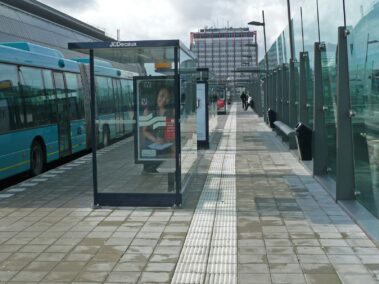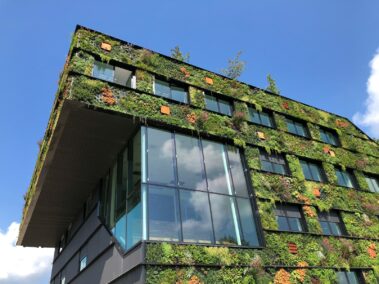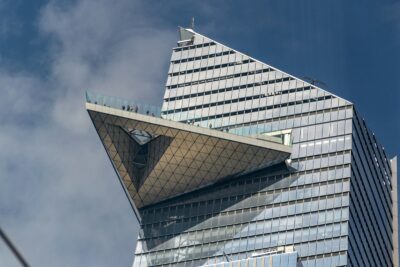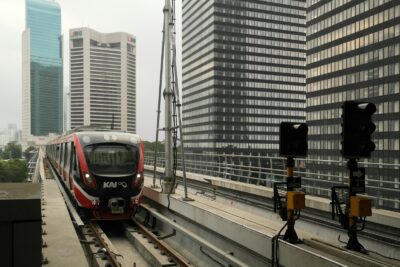Real-Time Air Quality Monitoring: A Pillar of Modern Urban Management
Leveraging Technology for Cleaner Air
The integration of real-time air quality monitoring in smart cities is a transformative approach to managing urban environments. In rapidly developing regions such as Saudi Arabia and the UAE, where urbanization is at its peak, leveraging technology to maintain air quality is crucial. Real-time air quality monitoring systems provide continuous data on pollution levels, enabling cities like Riyadh and Dubai to implement immediate and effective responses to deteriorating air conditions.
These advanced monitoring systems use a network of sensors strategically placed throughout the city to collect data on various pollutants. This data is then analyzed in real-time using sophisticated algorithms, often powered by artificial intelligence (AI). The insights gained from this analysis enable city authorities to make informed decisions about how to manage and improve air quality. For instance, during high-pollution periods, these systems can trigger automatic responses such as adjusting traffic flow or activating air purification systems in affected areas.
In Riyadh, where traffic congestion is a significant contributor to air pollution, real-time monitoring can help manage traffic more efficiently. By dynamically adjusting traffic signals and rerouting vehicles, the city can reduce emissions and improve air quality. Similarly, in Dubai, known for its innovative approach to urban management, air quality monitoring systems can activate air purification systems in public spaces, ensuring a healthier environment for residents and visitors alike.
Smart Cities and Automatic Responses
The concept of smart cities revolves around the use of technology to enhance the quality of urban living. Real-time air quality monitoring is a key component of this vision, enabling cities to respond proactively to environmental challenges. In Saudi Arabia and the UAE, where the development of smart cities is a national priority, integrating these monitoring systems is essential for achieving sustainable urban growth.
Automatic responses triggered by real-time air quality data are a hallmark of smart city initiatives. For example, in Riyadh, the data collected from air quality sensors can be used to regulate industrial emissions, ensuring that factories comply with environmental standards. This proactive approach not only helps maintain air quality but also supports the city’s commitment to sustainable development.
In Dubai, the integration of real-time air quality monitoring with other smart city technologies creates a seamless and efficient urban management system. The data from air quality sensors can be combined with traffic management systems, weather forecasts, and public health information to provide a comprehensive view of the city’s environment. This holistic approach enables authorities to implement targeted measures to improve air quality, such as restricting vehicle access to high-pollution areas or enhancing public transportation options.
The Role of Artificial Intelligence and Blockchain
Artificial intelligence (AI) plays a crucial role in the effectiveness of real-time air quality monitoring systems. AI algorithms can analyze vast amounts of data quickly and accurately, identifying patterns and trends that human analysts might miss. In the context of smart cities in Saudi Arabia and the UAE, AI-powered air quality monitoring systems provide the insights needed to make informed decisions about urban management.
For example, AI can predict pollution levels based on historical data and current trends, allowing city authorities to take preventive measures before air quality deteriorates. In Riyadh, this capability can help mitigate the impact of traffic congestion and industrial activities on air quality. Similarly, in Dubai, AI can optimize the operation of air purification systems, ensuring they are activated only when needed and in the most effective locations.
Blockchain technology also enhances the transparency and security of air quality monitoring data. By recording data on a decentralized ledger, blockchain ensures that the information is tamper-proof and easily accessible to all stakeholders. In the UAE and Saudi Arabia, where data integrity is a top priority, using blockchain technology in air quality monitoring systems builds trust and facilitates collaboration between different entities involved in urban management.
Strategic Implementation for Urban Success
Leadership and Management in Smart Cities
Effective leadership and management are critical for the successful implementation of real-time air quality monitoring systems in smart cities. In Saudi Arabia and the UAE, where innovation and technological advancement are central to urban development, leaders must be adept at navigating the complexities of integrating these systems into existing infrastructure.
Training programs that focus on the strategic use of technology in urban management can equip city officials and business leaders with the skills needed to leverage real-time air quality data. By understanding how to interpret and act on this data, leaders in Riyadh and Dubai can enhance the resilience and sustainability of their cities. This proactive approach not only improves air quality but also fosters a culture of continuous improvement and innovation.
Moreover, fostering collaboration between different stakeholders is essential for maximizing the benefits of real-time air quality monitoring. By encouraging open communication and data sharing between government agencies, private sector organizations, and community groups, leaders can develop comprehensive and coordinated strategies to address air quality challenges. In the competitive urban environments of Saudi Arabia and the UAE, where excellence is a constant pursuit, strong leadership and effective management are vital for leveraging the full potential of smart city technologies.
Project Management for Seamless Integration
The successful integration of real-time air quality monitoring systems in smart cities hinges on effective project management. This involves careful planning, execution, and monitoring to ensure that the systems are implemented seamlessly and function optimally. In regions like Saudi Arabia and the UAE, where large-scale urban projects are commonplace, adopting best practices in project management can facilitate the smooth integration of these technologies.
Project managers must collaborate with technology providers, data scientists, and urban planners to develop a comprehensive implementation plan. This plan should outline the goals, timelines, and resources required for the integration process. Regular progress reviews and adjustments based on feedback can help address any challenges that arise, ensuring that the project stays on track.
Additionally, post-implementation evaluations are critical for assessing the effectiveness of real-time air quality monitoring systems. By analyzing performance metrics and gathering feedback from users, project managers can identify areas for improvement and make necessary adjustments. This iterative approach aligns with the continuous improvement mindset prevalent in Riyadh and Dubai, where striving for excellence is ingrained in the urban development culture.
Conclusion: Building Healthier and Smarter Cities
The integration of real-time air quality monitoring systems in smart cities represents a significant advancement in urban management. In regions like Saudi Arabia and the UAE, where rapid development and technological innovation are key drivers of growth, leveraging these systems is essential for ensuring sustainable and healthy urban environments. By utilizing real-time data to anticipate and respond to air quality challenges, cities can enhance the quality of life for their residents and support long-term economic growth.
Effective leadership and strategic project management are crucial for the successful implementation of these technologies. Training programs that focus on data literacy and collaboration can equip leaders with the skills needed to navigate the complexities of real-time air quality monitoring. In Riyadh and Dubai, where excellence and innovation are celebrated, adopting advanced air quality monitoring systems is a strategic imperative for building resilient and prosperous cities.
As the world continues to urbanize, the ability to manage air quality effectively will be more important than ever. By embracing technological advancements and integrating real-time air quality monitoring into urban management strategies, cities in Saudi Arabia and the UAE can protect their environments and ensure long-term success. Through strategic planning and continuous innovation, urban centers can build a secure and healthy future, ready to face any challenges that may arise.
—
#AirQualityMonitoring, #SmartCities, #RealTimeData, #AutomaticResponses, #AirPurification, #TrafficManagement, #ArtificialIntelligence, #UAEInnovation, #SaudiArabiaSmartCities, #TechnologyInnovation, #Leadership, #ProjectManagement























